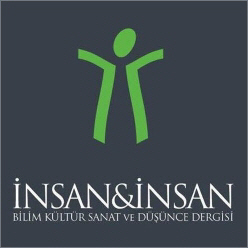Issue 33
Topic: Combating Global Climate Change: Think Global, Act Local
Issue Editor: Prof. Dr. Mikdat Kadıoğlu
Release Date: July 2022
Submission Date:
Start: 1 April 2022
End: 15 April 2022
Call for Paper
- The concept of sustainable development was defined in the report “Our Common Future” prepared by the World Commission on Environment and Development in 1987. This report is also known as the Brundlant report. Accordingly, “Sustainable development is development that meets the needs of the present without compromising the ability of future generations to meet their own needs.”
- In the following years, the scope of sustainable development expanded and this scope was revealed with the 17 objectives listed in the United Nations Sustainable Development Goals document. The 11th of these goals is “Sustainable Cities and Communities” and the 13th is “Climate Action”.
- Today, the world is faced with a serious threat of climate change caused by human influence. This is not a threat to the future. It is a threat that we are beginning to experience the consequences of with droughts, severe heat waves, increasing typhoons, floods and melting glaciers.
- What has led to this is the increased emission of greenhouse gases, especially CO2, as a result of the intensive use of fossil fuels in energy supply.
- The countries that came together with the Paris Climate Agreement set the goal of limiting the increase in global temperature to 2 degrees until the end of the century, and to limit it to 1.5 degrees if possible.
- Today, buildings are responsible for approximately 40% of global energy use and emissions. The effect of buildings is particularly evident in big cities. Big cities still consume 60% of the available natural resources and realize 70% of greenhouse gas emissions.
- About half of the world’s population currently lives in urban areas. By 2030, this number is expected to increase to approximately 5 billion people, or approximately 60% of the world’s population.[1]
- These rates show how important a role the construction industry will play in reducing CO2 emissions. The intensification of urbanization presents opportunities as well as risks in terms of reducing CO2 emissions.
- In the fight against climate change, on the one hand, it is necessary to transform from fossil fuels to renewable energy sources (mitigation) and on the other hand, it is necessary to use energy efficiently (adaptation).
- The starting point of efficient use of energy is undoubtedly the thermal insulation of buildings. Effective thermal insulation is one of the main routes to a society that has neutralized CO2 emissions.
- …
- Water
- Energy
- Zero Waste
- Transportation
- Resilience
- Land Use
- Education and Research
- Obligations and Commitments
- Execution and Participation
<>/ul
In this issue, the sub-titles that can be handled by authors from different disciplines in the mitigation and adaptation studies that need to be done within the scope of local climate action plans for Combating Global Climate Change in Turkey are as follows:
We are waiting for original studies that are suitable for the scope of this issue, and contribute to the academic literature for the 33rd issue of the Journal of İnsan ve İnsan, titled “Combating Global Climate Change: Think Global, Act Local”.
Prof. Dr. Mikdat Kadıoğlu
Issue Editor
P.S.: The manuscripts should be prepared in accordance with the Journal’s Ethical Principles and Publication Policy, and Writing Rules.
—–
[1] See for rates: Insulation for Sustainability: A Guide
